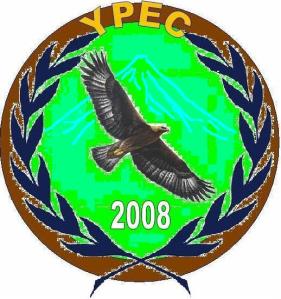G.R. No. 170633 October 17, 2007
Nachura, J. Third Division
Facts:
Petitioner
MCC Industrial Sales (MCC) is engaged in the business of importing and
wholesaling stainless steel products. One of its suppliers is the Ssangyong
Corporation (Ssangyong), an international trading company. The two corporations
conducted business through telephone calls and facsimile or telecopy
transmissions.Ssangyong would send the pro forma invoices containing the
details of the steel product order to MCC; if the latter conforms thereto, its
representative affixes his signature on the faxed copy and sends it back to
Ssangyong, again by fax.
Ssangyong then
filed, on November 16, 2001, a civil action for damages due to breach of
contract against defendants MCC, Sanyo Seiki and Gregory Chan before the
Regional Trial Court of Makati City. In its complaint, Ssangyong alleged that
defendants breached their contract when they refused to open the L/C in the
amount of US$170,000.00 for the remaining 100MT of steel under Pro Forma
Invoice Nos. ST2-POSTS0401-1 and ST2-POSTS0401-2.
After Ssangyong
rested its case, defendants filed a Demurrer to Evidence alleging that
Ssangyong failed to present the original copies of the pro forma invoices on
which the civil action was based.
The RTC,
however, excluded Sanyo Seiki from liability for lack of competent evidence.
On August 31,
2005, the CA rendered its Decision affirming the ruling of the trial court, but
absolving Chan of any liability. The appellate court ruled, among others, that
Pro Forma Invoice Nos. ST2-POSTS0401-1 and ST2-POSTS0401-2 (Exhibits
"E", "E-1" and "F") were admissible in evidence,
although they were mere facsimile printouts of MCC's steel orders.
Issue:
Whether or not photocopies of facsimile printouts
are admissible in evidence.
Ruling:
To
be admissible in evidence as an electronic data message or to be considered as
the functional equivalent of an original document under the Best Evidence Rule,
the writing must foremost be an "electronic data message" or an
"electronic document."
Paper records
that are produced directly by a computer system, such as printouts, are
themselves electronic records, being just the means of intelligible display of
the contents of the record. Photocopies of the printout would be paper records
subject to the usual rules about copies, but the "original" printout
would be subject to the rules of admissibility of this Act.
However,
printouts that are used only as paper records, and whose computer origin is
never again called on, are treated as paper records. In this case the
reliability of the computer system that produced the record is relevant to its
reliability.
Thus, in Garvida
v. Sales, Jr., where we explained the unacceptability of filing pleadings
through fax machines, we ruled that:
x
x x A facsimile is not a genuine and authentic pleading. It is, at best, an
exact copy preserving all the marks of an original. Without the original, there
is no way of determining on its face whether the facsimile pleading is genuine
and authentic and was originally signed by the party and his counsel. It may,
in fact, be a sham pleading.
Accordingly, in
an ordinary facsimile transmission, there exists an original paper-based
information or data that is scanned, sent through a phone line, and re-printed
at the receiving end.
Be it noted that
in enacting the Electronic Commerce Act of 2000, Congress intended virtual or
paperless writings to be the functional equivalent and to have the same legal
function as paper-based documents. Further, in a virtual or paperless
environment, technically, there is no original copy to speak of, as all direct
printouts of the virtual reality are the same, in all respects, and are
considered as originals. Ineluctably, the law's definition of "electronic
data message," which, as aforesaid, is interchangeable with
"electronic document," could not have included facsimile
transmissions, which have anoriginal paper-based copy as sent and a paper-based
facsimile copy as received.
We, therefore,
conclude that the terms "electronic data message" and
"electronic document," as defined under the Electronic Commerce Act
of 2000, do not include a facsimile transmission. Accordingly, a facsimile
transmissioncannot be considered as electronic evidence. It is not the
functional equivalent of an original under the Best Evidence Rule and is not
admissible as electronic evidence.
Since a
facsimile transmission is not an "electronic data message" or an
"electronic document," and cannot be considered as electronic
evidence by the Court, with greater reason is a photocopy of such a fax
transmission not electronic evidence. In the present case, therefore, Pro Forma
Invoice Nos. ST2-POSTS0401-1 and ST2-POSTS0401-2 (Exhibits "E" and "F"),
which are mere photocopies of the original fax transmittals, are not electronic
evidence, contrary to the position of both the trial and the appellate courts.













No comments:
Post a Comment